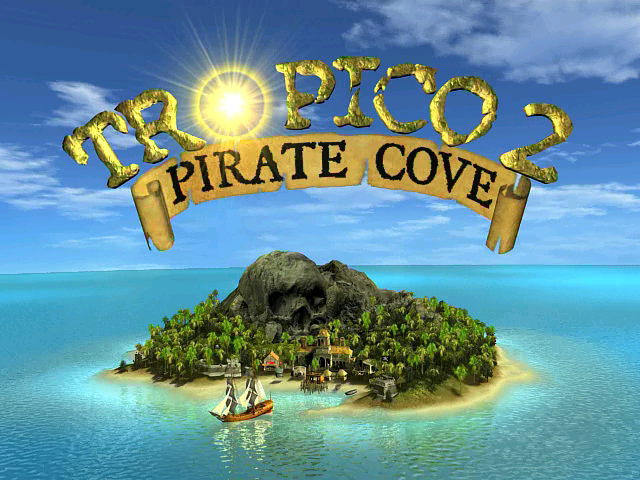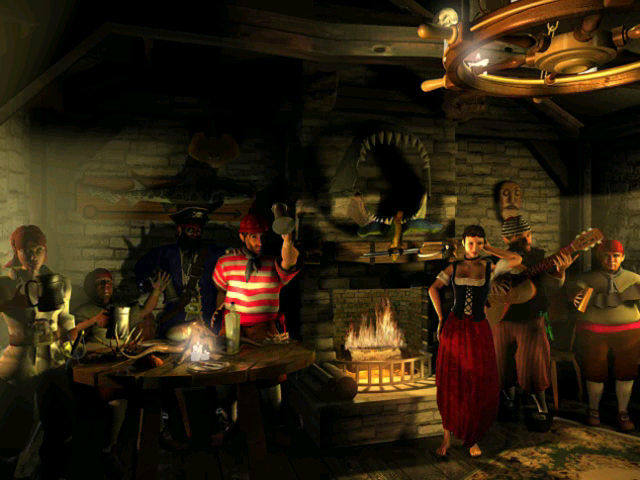The Art of the Possible
Let’s take a vacation to an island paradise where everybody has a name and I get to make all the rules. Let’s go to Tropico, a simulationy city/island-builder with dictatorial overtones!
 Steam actually doesn’t even recognize Tropico, its expansion, and Tropico 2 as separate titles. Instead, they are purchased wholesale as Tropico Reloaded, which is what I rolled this week. So I ended up spending a few hours with Tropico before dipping my toes into Tropico 2 for a little under an hour. I, sadly, did not try a new game with Tropico’s expansion content, nor do I think I ever will. What’s that? Why’s that? Let’s dictate!
Steam actually doesn’t even recognize Tropico, its expansion, and Tropico 2 as separate titles. Instead, they are purchased wholesale as Tropico Reloaded, which is what I rolled this week. So I ended up spending a few hours with Tropico before dipping my toes into Tropico 2 for a little under an hour. I, sadly, did not try a new game with Tropico’s expansion content, nor do I think I ever will. What’s that? Why’s that? Let’s dictate!
Tropico reminds me a lot of the original Sim City – its graphics, though decidedly aged, still feel perfectly functional and larger, more expensive buildings do indeed feel aspirational and satisfying to place. And Tropico scratches the same itch that the old city builder does; it lets me build up my own island, with everything in its place and everything under my control. It is a game where I get to micromanage things, but instead of the careful balance of residential/commercial/industrial, it is instead about balancing the education level of my workers, along with their political unrest and tourist dollars. The atmosphere and theme of the game come through quite well and it made me feel adequately dictatorial.
But it’s so slow. Was Sim City this slow? Maybe. Maybe this is just the pace of games that came out in the early aughts. Even at the fastest in-game speed, buildings take forever to erect, and the feeling of interminable wait is only exacerbated by the fact that it’s impossible to tell why. Do I need to build more construction offices? Should I work my builders harder? Do they just need to wait for them to route to the building site? Where are they anyway?
There’s a polish that is missing, though mainly through experience of making a simulation builder game. The newest Sim City may not be as deep of a simulation as I would have liked, but its ability to give the player visualizations and data is nothing short of astounding. The original Sim City did the same but didn’t need the orgy of visual data because it could express everything necessary through numbers. The difference there is that the original Sim City didn’t concern itself with each Sim and what he or she meant or thought or did – it concerned itself with population numbers and percentages and algorithms, and that was enough.
I think that’s where Tropico falters. It’s ambition to give every citizen a name and a job and feelings is too grand for the data it can easily give the player. All too often, I wanted a cross-reference of education level with current job with available jobs with political affiliation, but all I could actually bring up was a series of unconnected lists. This may very well be something I can easily visualize in Tropico 4 or 5, but asking me to care about each citizen of my island nation, Tropico makes me want to micromanage each of time. Heck, I spent most of my time firing specific people from specific jobs to try to push my employment numbers around.
It’s hard to make a simulation and deliver on both satisfying micro and macro gameplay. I’d know – I work on the Sims! As a general rule, I think builder simulations need to focus on one or the other, or they risk feeling weaker in both and not worth playing. Tropico feels like a macro-focused game, based on the pace of building and the general way the island is affected mainly by the layout and type of buildings that are placed, but it controls like a micro-focused game where the game eggs you into caring about the profession of every single citizen and forces managing an economy and a marketplace via very individualized actions. It doesn’t quite know which it is and suffers as a result.
That’s why I don’t see myself going back to Tropico. Maybe Tropico 2, which has a campaign based on individual building goals within a timeframe, followed by a canned celebration at the local pirate pub where every stereotypical pirate you can imagine congratulates you on building a functional lumber ecosystem. Certainly Tropico 4 or 5 or 6 or whatever number they’re on now, which have the advantage of experience and hindsight and may very well have broken down the data better.
I’m glad I got to spend some time back at the start of the millennium with Tropico, but it’s a game that has benefited from sequels and iteration, that shows its weariness when unfrozen from stasis and brought into the harsh light of the present day.


